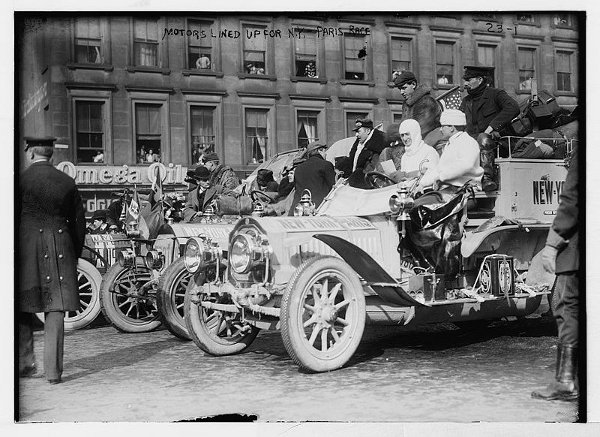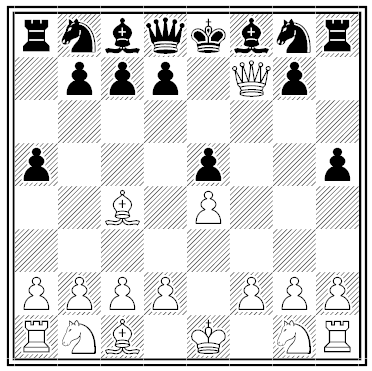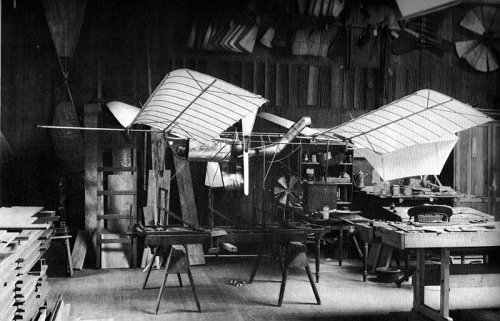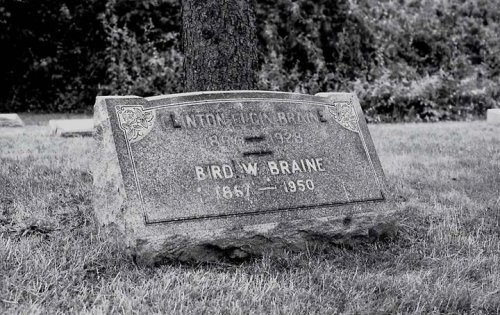
On Feb. 12, 1908, mechanic George Schuster joined five other motorists in Times Square to undertake an insanely ambitious race to Paris — by driving west to Alaska, across the Bering Strait, and then all the way through Siberia and Europe, a total of 20,000 miles.
“The drivers would surely have to make their own roads in many districts, and for many days most of the driving would be done on the low gear,” consultant Joe Tracy told the New York Times, which co-sponsored the contest. Tracy recommended that each team carry a windlass and block and tackle “to pull the car up steep grades and prevent it from dashing over cliffs in going down the mountains.”
One team got stuck in Hudson Valley snow, a second got lost in Iowa, a third was caught loading its car onto a train, and a fourth dropped out in Russia. Schuster finally arrived in Paris on July 30 to take first place, 170 days after leaving New York.
The prize was $1,000, but appallingly Schuster didn’t collect it until 60 years after the race, when he was 95 years old and nearly blind. After realizing its oversight the Times presented the payment at a 1968 dinner in Buffalo, acknowledging “what is probably the slowest payoff in racing history.”





